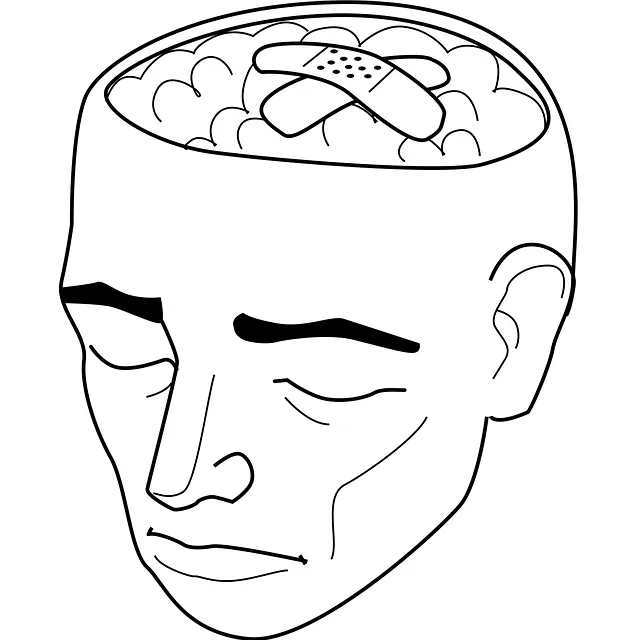The Lone Tree Kaiser Permanente mental health facility prioritizes crisis intervention through specialized CIT teams, offering rapid care for emotional distress and suicidal ideation. Their training programs equip staff with essential skills like active listening, empathy, and suicide prevention strategies, fostering a supportive environment. This holistic approach combines compassionate support with innovative communication, enhancing patient outcomes and staff resilience. Through ongoing workshops, case studies, and education resources, the facility ensures continuous improvement in crisis intervention techniques, ultimately promoting mental wellness for both professionals and patients.
“Crisis intervention teams (CITs) play an indispensable role in mental health care, providing immediate support during emergencies. This article explores the critical work of these specialized teams, with a focus on the Lone Tree Kaiser Permanente Facility, serving as a vibrant hub for emergency mental health services. We delve into comprehensive training programs that equip professionals with essential skills to navigate crises effectively. From understanding team dynamics to real-world success stories, this guide highlights the transformative impact of robust CIT training in healthcare settings, particularly at the renowned Lone Tree Kaiser Permanente mental health facility.”
- Understanding Crisis Intervention Teams: A Necessary Role in Mental Health Care
- The Lone Tree Kaiser Permanente Facility: A Hub for Emergency Support
- Training Programs: Equipping Professionals with Lifesaving Skills
- Essential Components of a Comprehensive Crisis Team Training
- Real-World Impact: Success Stories from the Field
Understanding Crisis Intervention Teams: A Necessary Role in Mental Health Care

Crisis Intervention Teams (CITs) play a vital role in mental health care, especially at facilities like Lone Tree Kaiser Permanente. These specialized teams are designed to respond quickly and effectively during crises, ensuring that individuals experiencing emotional distress or suicidal ideation receive immediate support. The primary goal of CIT training is to equip healthcare professionals with the necessary skills to de-escalate high-risk situations, promote mental wellness, and foster a sense of safety in those they serve.
Effective crisis intervention requires robust communication strategies. Training programs emphasize active listening, empathy, and clear, concise language to build trust between patients and caregivers. Additionally, self-care practices are integral to the CIT model, ensuring that team members can maintain their own mental health while providing support to others. This holistic approach not only benefits patients but also promotes a healthier work environment for healthcare professionals at Lone Tree Kaiser Permanente.
The Lone Tree Kaiser Permanente Facility: A Hub for Emergency Support

The Lone Tree Kaiser Permanente mental health facility stands as a beacon of hope and support for those in crisis. This specialized center is equipped to handle a wide range of emotional and psychological emergencies, offering immediate assistance and long-term care solutions. With dedicated professionals who are experts in their fields, the facility serves as a hub for emergency interventions, focusing on both acute care and recovery planning.
The program’s effectiveness lies in its holistic approach, combining compassionate care with innovative communication strategies. By fostering open dialogue, the team addresses not just the immediate needs of patients but also focuses on depression prevention and mental wellness promotion. This comprehensive model ensures that individuals not only receive treatment for their current crisis but are also empowered with tools to maintain their mental health over time.
Training Programs: Equipping Professionals with Lifesaving Skills

At Lone Tree Kaiser Permanente mental health facility, crisis intervention team training programs play a pivotal role in equipping professionals with invaluable lifesaving skills. These comprehensive courses delve into intricate aspects of psychological first aid, suicide prevention, and trauma-informed care, enabling healthcare providers to effectively navigate and de-escalate crises. Through interactive simulations and evidence-based practices, staff members learn to recognize subtle cues of distress, provide immediate emotional support, and coordinate care for individuals in crisis, ultimately fostering a culture of resilience within the facility.
The programs go beyond initial training, offering ongoing workshops and resources to enhance skills in burnout prevention and emotional healing processes. Engaging seminars, case studies, and peer discussions contribute to a dynamic learning environment where professionals can share insights and best practices. Additionally, these initiatives are complemented by the Mental Wellness Podcast Series Production, providing accessible platforms for continuous education and inspiration, fostering mental wellness both within and beyond the confines of Lone Tree Kaiser Permanente.
Essential Components of a Comprehensive Crisis Team Training

A comprehensive crisis intervention team training program at facilities like Lone Tree Kaiser Permanente mental health facility should include a multi-faceted approach. Firstly, it must equip team members with robust communication skills, ensuring they can connect effectively with individuals in distress. This involves both active listening and empathy, fostering an environment where people feel heard and understood. Moreover, integrating emotional intelligence (EI) into the training is vital; EI helps team members recognize and manage their emotions, as well as understand and respond to those of others, enhancing overall crisis resolution.
In addition to these core elements, a balanced curriculum should delve into various scenarios, allowing participants to practice their skills in realistic settings. This includes teaching strategies for managing acute crises, such as suicidal ideation or psychotic episodes, as well as long-term interventions aimed at improving mental wellness. Incorporating aspects of Depression Prevention through the Mental Wellness Podcast Series Production can offer innovative ways to promote emotional resilience and early intervention techniques, ensuring that team members are equipped to support not just immediate crises but also the ongoing journey towards mental health recovery.
Real-World Impact: Success Stories from the Field

The impact of crisis intervention team (CIT) training programs is evident in numerous success stories emerging from various settings, including healthcare facilities like Lone Tree Kaiser Permanente’s mental health center. By equipping staff with the skills to recognize and respond effectively to individuals in distress, these programs have contributed to improved patient outcomes. For instance, a study at Lone Tree revealed that CIT-trained staff were better able to de-escalate potentially violent situations, reducing the need for physical restraints and enhancing safety for both patients and caregivers.
Moreover, the integration of self-care routine development for better mental health, mindfulness meditation, and emotional well-being promotion techniques within these training programs has been transformative. These practices not only enhance the resilience of CIT members but also enable them to provide more compassionate care. Success stories from Lone Tree Kaiser Permanente highlight how staff, armed with these tools, could support patients in developing coping strategies and fostering a sense of calm, ultimately contributing to improved mental health outcomes and patient satisfaction.
Crisis intervention team (CIT) training programs are invaluable assets in enhancing mental health care, as evidenced by the success of initiatives at the Lone Tree Kaiser Permanente facility. These comprehensive courses equip professionals with essential skills to navigate and de-escalate crisis situations, ultimately saving lives. By integrating real-world scenarios and evidence-based practices, CIT training ensures teams are prepared to handle a variety of challenges. Through ongoing education and collaboration, such as those offered at Lone Tree Kaiser Permanente, the mental health community can foster supportive environments that promote healing and recovery.






